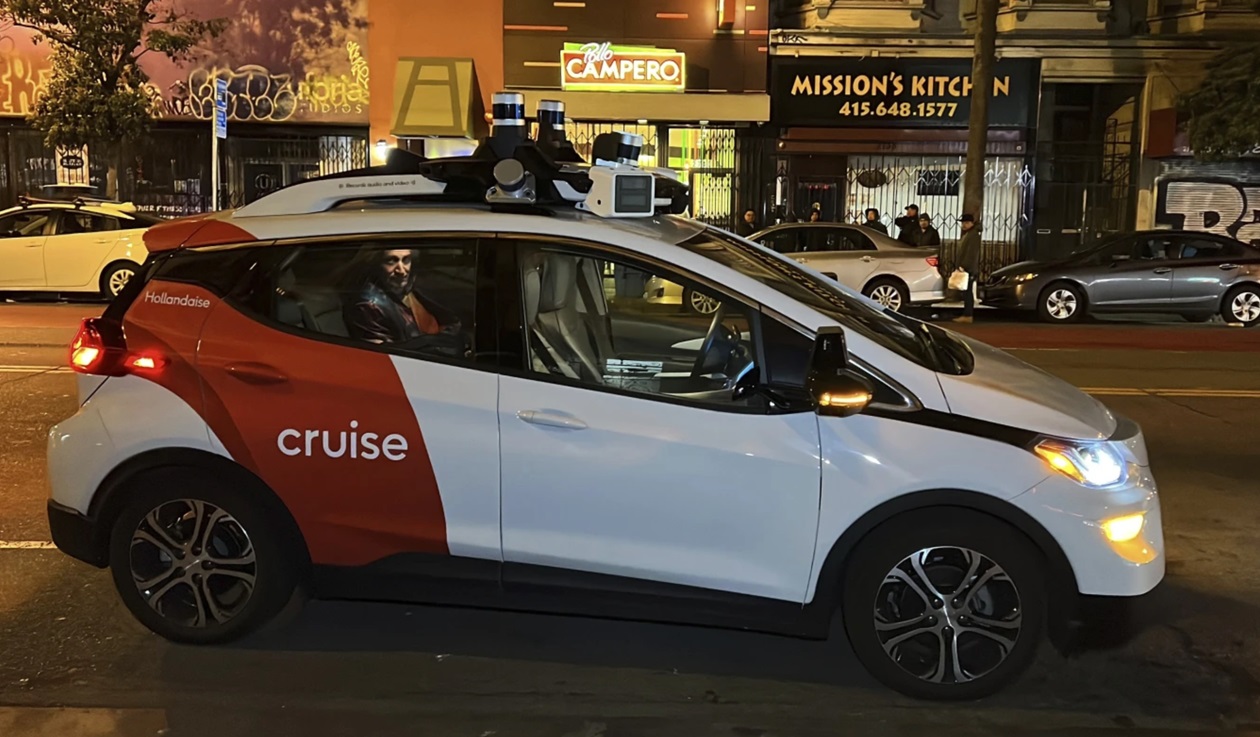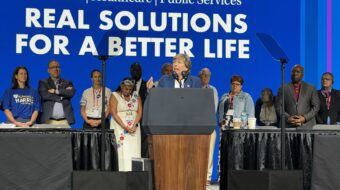
SAN FRANCISCO —The Transport Workers are leading a coalition of more than two dozen unions seeking a federal crackdown on and regulation of driverless vehicles, especially RoboTaxis, in the wake of fatal accidents involving those machines killing pedestrians.
And along the way, the unions picked up heavyweight congressional support for their demand, from former House Speaker Nancy Pelosi, D-Calif., whose district encompasses San Francisco.
The unions’ letter to Transportation Secretary Pete Buttigieg came after an “autonomous vehicle,” a driverless RoboTaxi manufactured by Cruise, a GM subsidiary, fatally hit a San Francisco pedestrian. The federal National Highway Traffic Safety Administration is investigating that death.
“Driverless vehicles are a menace to society,” Samuelson wrote to Buttigieg and NHTSA’s chief. “These untested, unproven robots block traffic, hinder first responders and emergency services, and harm pedestrians and other road users—with tragically fatal consequences.”
There “has been a steep decline in safety everywhere these vehicles operate.”
The San Francisco crash was the last straw for the California Department of Motor Vehicles, following prior accidents in the Golden State and elsewhere, some fatal. It pulled Cruise’s license to operate. Cruise responded by stopping all its cruising driverless vehicles nationwide.
TWU President John Samuelsen’s letter, co-signed by the other unions, says the threat is national, and that it comes not just from Cruise, but from other driverless vehicle operators, too, such as Waymo and Zoox. They haven’t been banned, yet.
But the California Department of Motor Vehicles issued a warning to all driverless vehicle companies: “Public safety remains the California DMV’s top priority. When there is an unreasonable risk to public safety, the DMV can immediately suspend or revoke permits.” Since California houses one of every eight U.S. residents, its DMV’s orders carry great weight nationwide.
In a statement, Samuelsen elaborated: “TWU has long warned about these dangers. Today, we join dozens of unions and their members to once again call on lawmakers and the federal government to investigate driverless technologies and the tech companies responsible for them, and to lay down hard, fast rules for how and when we allow these machines to operate on our streets.”
Other workers, including road construction workers, truckers, firefighters, and bus operators, have seen the menace of the driverless vehicles, the unions said in their joint statement. And first responders “have been hindered in their duties” by having to dodge the driverless vehicles on the way to emergencies.
The “state-by-state patchwork of regulations currently governing these machines…amounts to little more than a lawless Wild West for driverless robots.”
In an earlier statement, Samuelsen said driverless vehicles can’t duplicate the decision-making and reactions of drivers—which makes them dangerous: “Operating a motor vehicle is a demanding responsibility that requires skill, specialized training, and the ability to make split-second, life-saving decisions. Despite the propaganda by tech executives, Cruise has shown the world robots are incapable of even coming close to achieving the high standards human operators meet each day.”
Federal rules are needed to “keep our constituents safe” from the safety hazards of AVs, or autonomous vehicles, Pelosi and Rep. Kevin Mullen, D-Calif., wrote. “AVs on the streets of San Francisco, which we both represent, have been having challenges in addressing complex real-world situations, such as navigating road work zones and reacting to the temporary outage of signals.”
We hope you appreciated this article. At People’s World, we believe news and information should be free and accessible to all, but we need your help. Our journalism is free of corporate influence and paywalls because we are totally reader-supported. Only you, our readers and supporters, make this possible. If you enjoy reading People’s World and the stories we bring you, please support our work by donating or becoming a monthly sustainer today. Thank you!












Comments